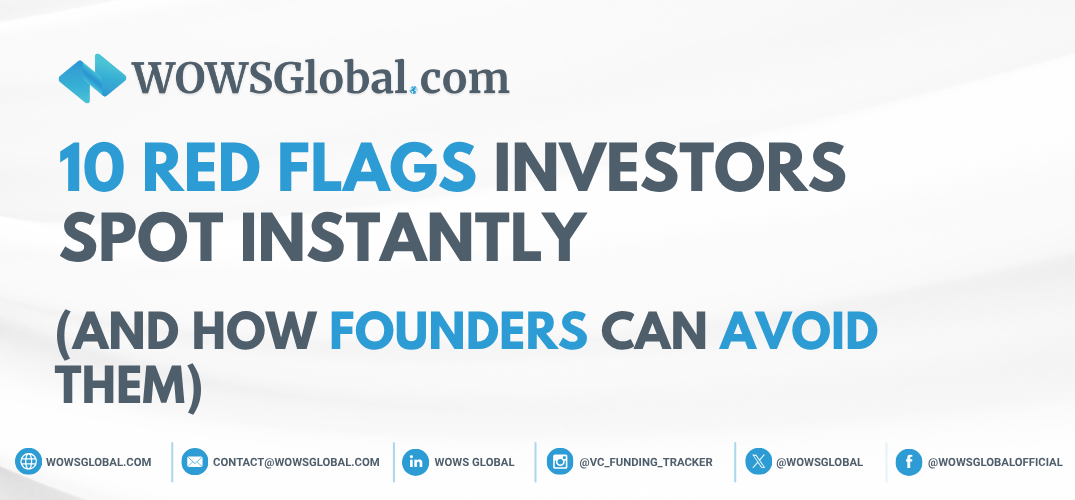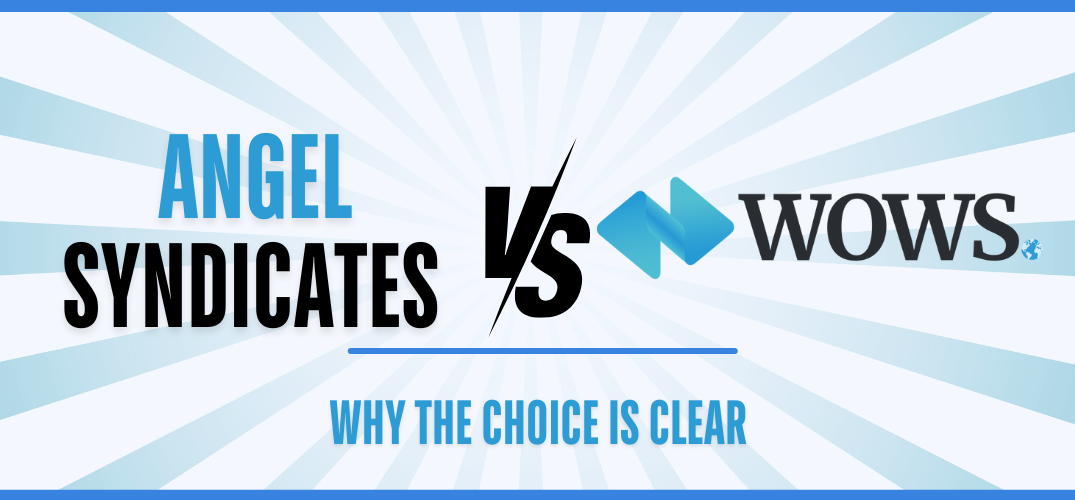Let’s Be Honest: Fundraising Sucks
Fundraising Fundraising for Founders Fundraising Rounds

Harsh but True
It is harsh but true, founders must be prepared for rejection when seeking necessary funding. On that premise, and before getting into some ‘no punches pulled’ reasons as to why fundraising really does suck, here are two pieces of advice that founders need to keep uppermost in their minds at all times:
- Rejection: Multiple rejections do not lead to a dead end.
- An old adage: If at first you don’t succeed, try, try again.
Make no mistake, the startup world is a tough one but it can also be very rewarding. After all, as a founder you have belief in your product or service, you should have a grasp of the time and resources needed to get up and running and have a focus on where your target market lies.

Advantage Investors!
Let’s start with some major reasons why fundraising is an often frustrating and time-consuming process.
Because the money founders need comes from investors it is important to understand their position, where they are coming from, and some of the major reasons why funding is not easily given.
Investors do it professionally
Any investor worth their salt will make it their business to fully understand the ins and outs of fundraising. It is regularly the case that those founders who are looking to raise a seed round know much less. This stands to reason because it is often the first time they are going through such a process.
Founders also need to understand that, in general, venture communities are well established and they will talk to each other. This means your pitch (including the amount of money you are looking for) is likely known about and discussed by more investors than you meet with.
Because investing is their chosen business it stands that they need to make money to survive. The straight fact here is that investors need to avoid bad investments while taking full advantage of good ones. This is far easier said than done and here’s why….
The stats are against you (and the investors!)
It is a widely touted fact that around 90% of all startups will fail. An angel-type investor looking to invest $100,000 will typically look at around 40 deals before they find one they feel is worth putting their money into.
On that basis, it means founders will need to have discussions with at least 40 potential investors. However, the reality is you can multiply that by at least 5 and quite possibly 10 to find the amount of funding you are after.
Why investors are wired to say ‘No’
This point relates to the nature of startups in general and the strong competition faced. There are many more founders seeking investment than there are investors and money to match.
When you meet with an investor you will never know who they have spoken to before you or who they will speak to afterward. We have already mentioned the high number of proposals investors will consider before saying “Yes” to one.
Founders need to understand that professional investors are wired to say “No”. They will be looking for reasons to say no and those reasons come from a variety of different factors. Just one negative and it is very likely an investor will pass.
It puts a big strain on your ‘day job’
As a founder, you would much rather be at the coalface during the initial stages of product or service development. After all, it is your concept and you know what direction you want to be heading in. The issue is, to realize your goals, funding is needed.
This means you must get out on the road to meet investors and that can take around 20+ hours out of your week. It is also not just the time you have to find, these sessions will be emotionally and physically testing.
Investors will want to know how you are coping with running and growing your business while you are out on the road. They will want assurances that your business is managing while you are out and they will also expect clear answers to a wide variety of questions.
These are tough asks, most founders are not trained in the art of pitching. But it is a necessity and something that needs to be handled to the best of their ability. As will be seen in the section below on how to make the fundraising process more effective it is a lot about preparation, knowledge, and confidence.
Timing is everything
This last point has nothing to do with how well you put your proposal over to investors. Your pitch may well be the perfect fit and an investor may really like the concept. However, if they have just agreed to a similar investment, or they are feeling exposed due to current investments then they will reluctantly have to decline.
Founders should also temper their expectations even if a “Yes” is initially given. This is for a variety of reasons – Something could turn up in the due diligence process, things may suddenly change in the market sector you are in or with the competition you are up against, or investors may have issues of their own and therefore change their mind.
While it may be very difficult, the only approach here is to keep your feet on the ground and wait until the promised investment amount is in your hands. Until it is, you will still be looking for those much-needed funds.

Making the Fundraising Process More Effective
Founders fully understand that the fundraising process is essential if their company is to succeed and flourish. This means taking the challenge on with both hands and a real determination.
Here are 5 ways in which you can make that process much more effective:
Fully understand your funding needs
Founders need to be fully aware of the stage their project is at. This will determine which type of investors would be most interested and what they are expecting you to show them.
You need to put over a compelling story with any proof of concept, financial figures if you have them, and any growth strategies to back up your claims.
How much money are you looking to raise?
Doing the math is essential. You need to have an idea of the amount you need to move your company forward with a breakdown of where that money will be spent. Investors will want to know how you intend to use the asked-for funds and how this money will be allocated / best used.
Founders should not be starting the fundraising process just because that is what startups do! Being vague about the specific goal you have in mind simply will not cut it. The more exact you are, the better-placed investors will be when deciding if your proposition fits their investment preferences and profile.
Clear communication is crucial
Founders need to prepare their ‘pitch’ with care and clarity. It is essential to state exactly what makes your venture a valuable investment opportunity. Investors are not in the business of helping a startup find an opportunity. They want to understand what your opportunity is and how it will make them their money.
Your message needs to be clear, convincing, and bold. It also needs to be targeted at the type of investor that fits with their investment profile. Consider and put over what makes your project stand out from others.
Have a clear answer as to what your USP (Unique Selling Proposition) is. The stronger your USP the better your proof of concept and the chance that your business will be seen as a solid investment and an investor risk worth taking.
Also, use your startup’s strengths to leverage attention and get these out right at the start. The old saying “First impressions count” is a very valid one. Do remember, your presentation pitch is just the start. From there you should have answers ready for onward discussion.
Be ready for the long haul
Founders need to be realistic about the length of time the fundraising process takes. On average you should expect between 3 to 6 months but be prepared for a longer timescale. Frustrating that may be, but that does not mean you can slacken off from first investor contact to last.
This takes persistence, determination, and a thick skin! There is sure to be more discouragement than encouragement and that needs to be overcome. Just remember belief in yourself, belief in your venture, and positive thinking need to remain uppermost in your mind.
Get a handle on the investor landscape
Founders need to understand the investor landscape. Doing so will help you understand at which investors’ doorstep you are likely to be listened to. Targeting the right startup investors to fit your business sector and profile will save time and effort.
If you do find that you are talking to an investor whose fund profile does not fit your project then trying to convince them to invest is futile. However, in this situation, it will do you no harm at all to be bold and ask them to introduce you to other investors in their network who could be interested.
With that in mind, there is a solution to maximize the fit between your startup and the type of investors who will be most interested in listening to your story.

Seek Professional Assistance
With the fundraising challenges founders face, they must leverage assistance in the right manner. That is where WOWS Global comes in. Our highly knowledgeable team has years of experience in the startup world. We understand firsthand the challenges that founders face when it comes to raising funds.
We are ready to partner with you. Doing so will help you understand the most effective way to get your message over and increase your chances of securing the funds you need.
On top of the personal advice and guidance that WOWS Global can offer comes a digital ecosystem we have built. It is one that unifies companies and investors.
Our state-of-the-art online systems offer a full suite of tools to help your company grow and prosper. We also have the ability to assist founders in their fundraising efforts from process start to completion.
Highly important elements of our service include the ability to create and organize fundraising and to access liquidity channels. We also offer exclusive and priority access to private market investment opportunities.
To get your fundraising efforts off to the most positive start possible please feel free to reach out to us on: contact@wowsglobal.com
Related Posts
-

Fundraising 409A Valuation Cap Table Management Investor
WTF Is 409A and Why Should I Care?
Learn what a 409A valuation is, why it matters for employee stock options and how it impacts founders, investors, taxes and diligence, plus how WOWS Global can help. -

Early Startups Fundraising Due Diligence Data Room
2026 Fundraising: What Changed?
Fundraising in 2026 isn’t about moving faster—it’s about showing up prepared. Learn how to build an investor-ready system (modeling, governance, data room, and investor fit) so diligence doesn’t drag and your strongest conversations go the distance. -

Fundraising investor relations Traction Financials
10 Red Flags Investors Spot Instantly (And How Founders Can Avoid Them)
From vague problems to broken cap tables, these are the 10 signals that turn investors off—plus practical fixes so you can raise with confidence. -

Fundraising Angel Syndicates VC
The Battle of Angel Syndicates vs. WOWS Global: Why the Choice is Clear
WOWS Global vs. Angel Syndicates: A detailed comparison of costs, network depth, technology, and expert support. Learn why WOWS Global is the better choice for startup fundraising and scaling. -

Startups Fractional CFO Fundraising
Why Your Accounting Director Might Not Be Enough: The Surging Demand for Fractional CFOs in Startups
In the fast-paced world of startups, having an Accounting Director may not be enough. Discover why over 75% of pre-Series B startups are turning to fractional CFOs for strategic financial guidance that can make or break your growth trajectory. -

Early-Stage Investors Funding Funding Round Fundraising for Founders Investor
Shh! Don’t Share These Fundraising Insider Secrets
Startup founders need to fasten their seatbelts and prepare for a roller-coaster ride if they are to achieve success. It is a straight fact that founders will find themselves wearing many hats to get their venture up, running, and thriving.
